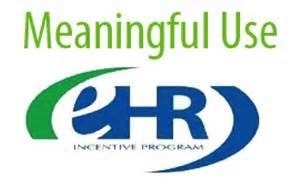
The Centers for Medicare & Medicaid Services, through the CMS Electronic Health Records (EHR) Incentive Programs encourages Hospitals, Health Care Centers, Primary Care Doctors, and other “eligible professionals” to “meaningfully use” Health Information Technology to electronically document, manage, and securely share health information between patients , clinical care teams, public health organizations, and various other healthcare related service providers.
The goals of the CMS Electronic Health Care Record (EHR) Incentive Program are to:
- Improve patient safety and clinical outcomes;
- Reduce cost and increase efficiencies thru ought the health care system, and;
- Create expanded opportunities for patients to participate actively in their care.
All Federally Qualified Health Centers in New Jersey are participating in the NJ Medicaid “Meaningful Use” EHR Incentive Program, which requires that providers demonstrate they are using certified Electronic Health Record (EHR) technology in ways that measurably improve health care quality and efficiency. NJ FQHC’s have used this program to convert from their older static paper based record keeping system, to new interactive MU certified Electronic Health Records systems.
The benefits of an EHR system include:

- Complete and Accurate Information – With an EHR system, FQHC providers have the information they
need
to provide the best possible care. Clinicians will know more about their patients’ health history before
they walk into the examination room.
- Better Access to Information – An EHR facilitates greater access to the information that FQHC
providers
need to diagnose health problems earlier and improve the health outcomes of their patients. An EHR system
also allows information to be shared more easily among doctors’ offices, hospitals, and across health
systems, leading to better coordination of care.
- Patient Empowerment – EHR help FQHCs empower patients to take a pro-active role in their health
and in the health of their families. Patients can receive electronic copies of their medical records and
share their health information securely over the Internet with their families. Patient Empowerment – EHR helps FQHCs empower patients to take a pro-active role in their health and the health of their loved ones. Patients can have immediate access to their clinical information such as visit summary, immunization record, diagnostic test results, request an appointment, and communicate with their medical home provider by enrolling in the patient portal.
- EHRs can also flag potentially dangerous drug interactions (to help prescribing
doctors explore alternatives before a problem occurs), verify medications and dosages (to
ensure that pharmacists dispense the right drug and dosage), and reduce the need for potentially
risky tests and procedures. Patient Safety – The EHR can also flag potentially dangerous drug interaction (to help prescribing doctors explore alternatives before a problem occurs), verify medications and dosages (to ensure that pharmacists dispense the right drug and dosage), and reduce duplication of unnecessary the need for potentially tests and procedures.
For a detailed overview of the new rules, visit the CMS website here. For other resources, click on the links below.
Resources: